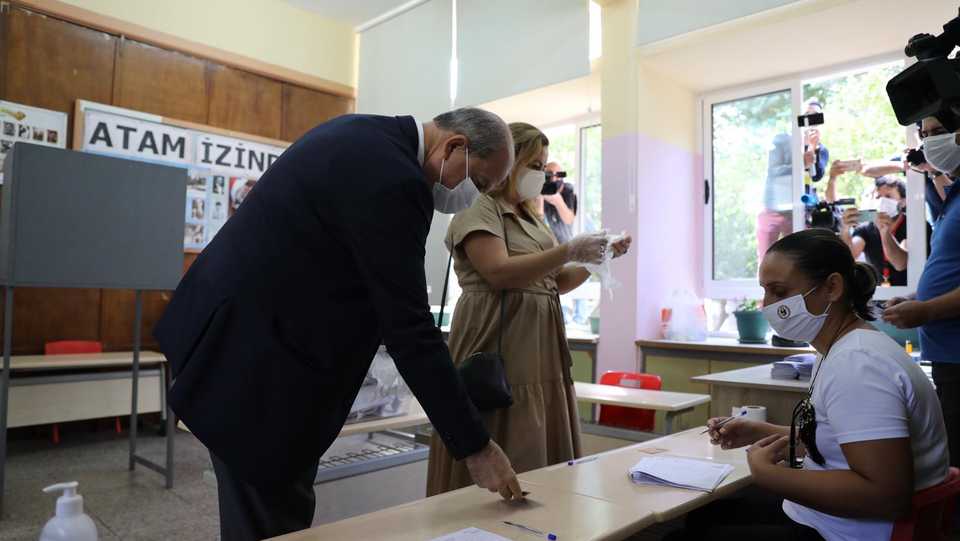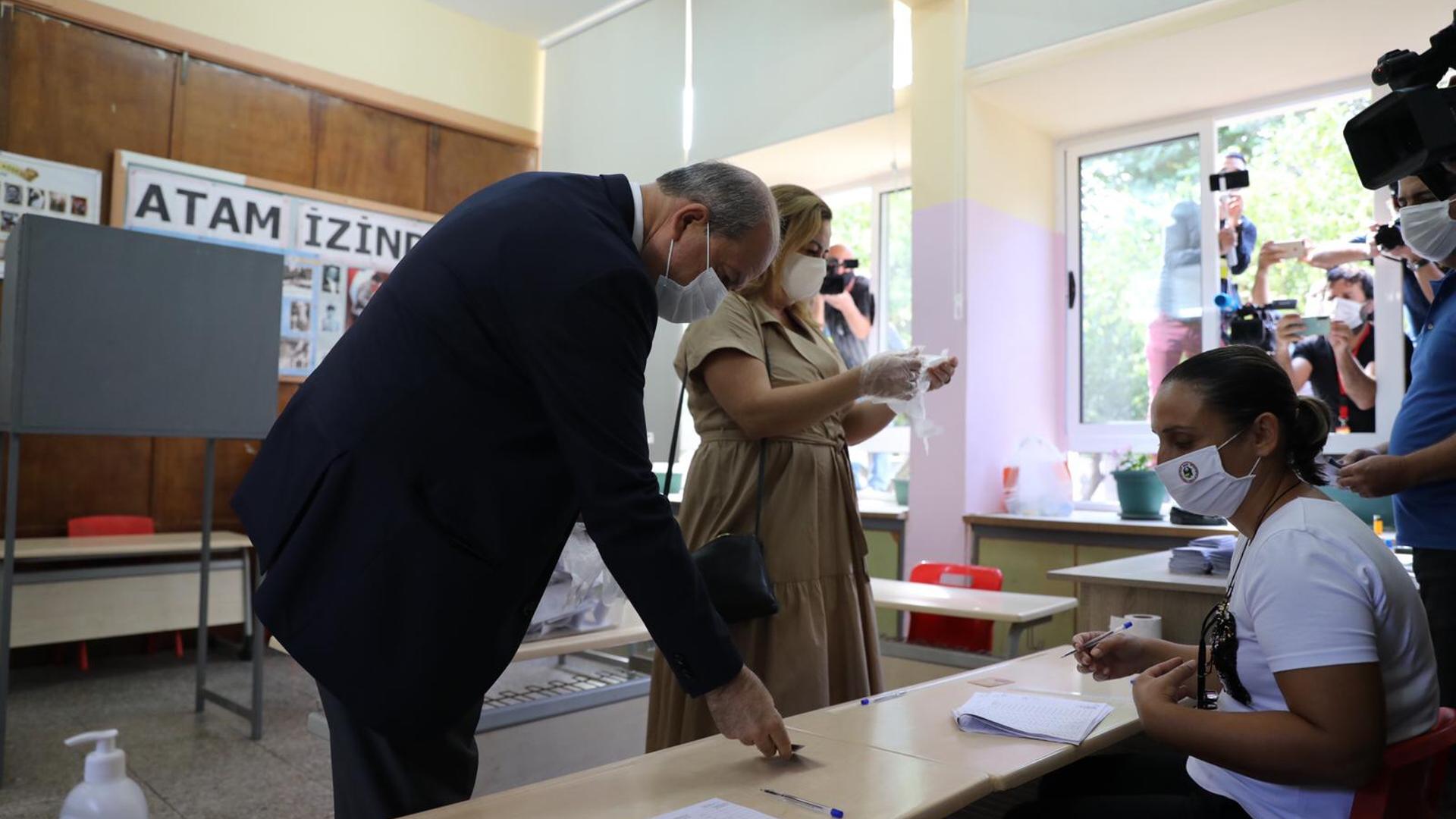
Voters in the Turkish Republic of Northern Cyprus or TRNC will head to the polls again in the second round of the election, as candidates have failed to secure more than 50 percent of votes in the first round of the presidential race.
With 98.64 percent of ballot boxes opened so far after Sunday’s voting, Prime Minister Ersin Tatar has secured 32.45 percent of the votes, the Bayrak Radio TV Corporation reported, citing unofficial data by the election authority.
President Mustafa Akinci, an independent candidate, is the runner-up with 29.76 percent of the votes.
Tatar and Ersin will face off in the second round of the presidential election on October 18.
The TRNC counts more than 300,000 citizens. Just under 200,000 were registered to vote in the election.
READ MORE: Cypriot Turks open a ghost town to tourism to increase stake in Cyprus
Historic election
Turkish Cypriots begin voting for a new president tasked with overcoming their deep political chasms with rival Greek Cypriots.
While Tatar defends the idea of a two-state solution in Cyprus or a two-state confederation with the Greeks, his rival Akinci insists on the federation system.
Tatar opened the coastline of the touristic city of Maras, which has been closed for 46 years, to civilians.
Akinci had strongly opposed the opening of the city under the Turkish Cypriot administration.
The leader who will win will also determine the direction of the Cyprus solution negotiations, the energy and sovereignty struggle that has recently marked the eastern Mediterranean, and the future of the Maras initiative.
READ MORE: Turkey says EU should respect its stance on eastern Mediterranean
Peace talks
The first major test for the winner will likely be a meeting hosted by UN Secretary General Antonio Guterres that will bring together the two sides with Cyprus’ three “guarantors”, Greece, Turkey, and Britain, to scope out the chances of resuming frozen peace talks.
The Mediterranean island has been divided between TRNC in the north and the Greek Cypriot administration in the south since 1974.
Offshore gas exploration around the island, part of a wider battle for influence in the eastern Mediterranean, has seen tensions soar between Greece and Turkey.
READ MORE: Turkey: US poisoning peace by lifting arms embargo on Greek Cypriots
Divided island
In 1974, violence broke out amid a Greek Cypriot attempt to forcibly unite Cyprus with Greece, then ruled by a right-wing military junta.
Turkey sent 40,000 troops under Operation Atilla, to the island’s north.
As a result of Greek Cypriot attacks, at least 30,000 Turkish Cypriots were displaced from their villages and tens of thousands of Greek Cypriots were also displaced.
The Turkish Cypriot population moved north, and the Greek Cypriot population moved south.
Negotiations over Cyprus resumed after a 2004 deal put forward by former UN Secretary General Kofi Annan to reunify the Turkish Cypriot and Greek Cypriot communities.
The plan was rejected in a referendum by the Greek portion of the island, while Turkish Cypriots voted in favour of the plan.
Then in 2004, Greek Cyprus acceded to the European Union.
Turkey objected to this accession, as the European Union had made the passing of the referendum a condition for Cyprus’ membership.
READ MORE: After lifting the arms embargo, is the US interested in peace in Cyprus?










Discussion about this post